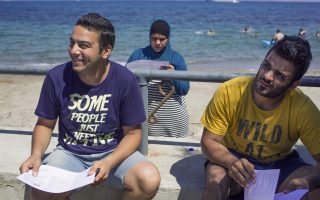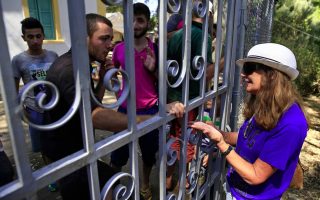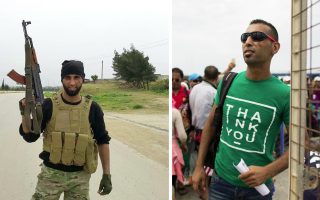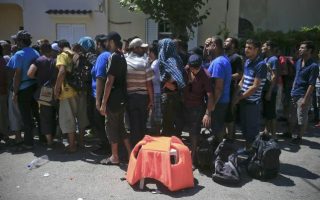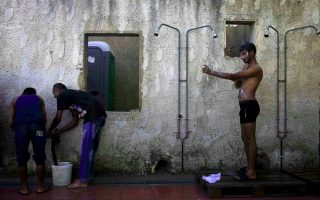On Lesvos, tourist comforts clash with migrant needs
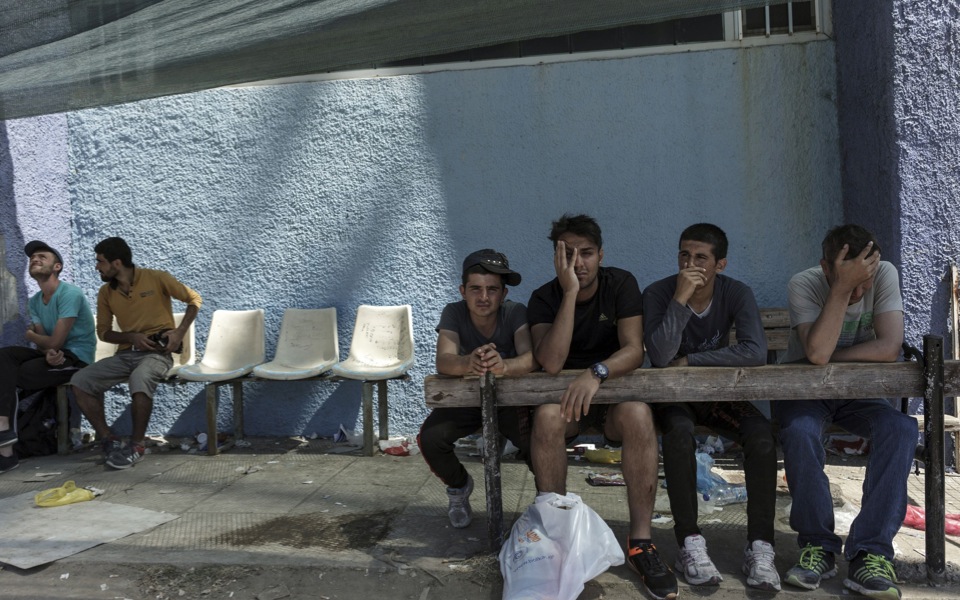
On the Greek island of Lesvos, a record influx of desperate migrants has left the tourist sector struggling to help out while still trying to keep its normal clientele.
“People feel sorry for them, of course – I do also – but it's not good for our business when they come to our beach,” says Teresa Dalvadanis, a 45-year-old Swedish restaurant owner, herself once a stranger to these shores.
“They want to take a shower here; they sleep on the beach. You know, it's a mess for everybody. We want to help them but we can't help them,” she adds.
At one hotel near the island's port capital of Mytilene, a Syrian man asks in excellent English if there are any available rooms, showing his registration papers which, in theory, should allow him to secure accommodation.
He is told the establishment is full and so walks away, after one last look at the clearly unused key cards behind the reception desk.
The migrant crisis has hit Greece full-force whilst the country's six-year economic troubles are still raging.
Some 160,000 migrants and refugees have landed on Greek shores since January, with the authorities criticised by the UN and humanitarian groups for poor preparation that has left thousands sleeping on the streets.
Local authorities counter that their limited resources have already been stretched to the limit by the influx.
“It's not possible for the municipality or the government to deal with this problem that affects all of Europe, all of the world. It's not our responsibility,” the island's mayor Spyros Galinos told AFP in an interview.
Most of the migrant arrivals are from Syria, where civil war, raging for a fifth year, is believed to have displaced over four million people and claimed more than 240,000 lives.
In Mytilene, where most of the migrants gather hoping to catch a boat off the island, they sleep in the open without toilets or showers provided.
There are no food handouts or drinking water for these temporary visitors in the town itself and in the camps the conditions are little better.
“This country is beautiful and I think it's doing its best… but it needs more money, more people to help organise this. I think the government doesn't know what it's doing,” said Muhammed al-Hussein al-Murati, a 35-year-old refugee from Aleppo, who finally managed to leave on Wednesday after several days on the island.
In recent days tensions have been rising between migrants desperate to find a way off the island and towards their dream of a better life in western Europe.
Among young men from Afghanistan, Iraq and Somalia there is anger at having to wait longer than Syrian refugee families, who get precedence in securing their registration documents.
With taxes rising and unemployment still soaring, Lesvos has experienced a 40-percent drop in Greek tourist arrivals, but the number of foreign holidaymakers is up.
Teresa says her business is down 50 percent compared to last year, a combination of the refugee and the financial crises.
But the locals have found there are some advantages to having the migrants around.
“Those people are starting to use hotels, taxis, ferry boats, everything – so economically what we almost lost, we earn it again from them,” says Giannis Samiotis, president of the island's travel agents' union.
A constant stream of Syrians, Afghans, Iraqis and others enter Irene Bolkas shop at the harbour. The displays of souvenirs and magnets remain untouched but she is doing a roaring trade in tents.
“We’re only selling camping equipment as we don't have any tourists. Only migrants are buying from us,” she says.
Further down the street, each evening there is a long line outside a kebab house from the moment it opens in the early evening until it closes late at night.
The owner has even employed a doorman to enforce a one-in, one-out policy.
Entrepreneurship and opportunism are also taking hold – some locals recycle the engines and sellable parts from the boats used to bring the migrants in; others cash in on the demand for food, clothes and other supplies.
On Wednesday morning, some 2,500 migrants sailed for the Greek mainland aboard a government-chartered ferry commissioned to help ease the pressure on Mytilene.
They are heading north towards Hungary – the nearest EU member which does not impose border controls with the rest of the bloc – and hoping from there to reach Germany and Sweden.
But Budapest's stance hardened this week, with the government announcing plans to stem the flow of people entering from the south.
Back on Lesvos, the mayor reflects on the paradox that many of the migrants he has seen could have helped Greece recover from its economic crisis.
“I really believe – through my own interaction with the migrants and refugees – that among them there are some skilled people who could help build up – not only our economy and society but also – the economies and societies of other EU countries.”
[AFP]
